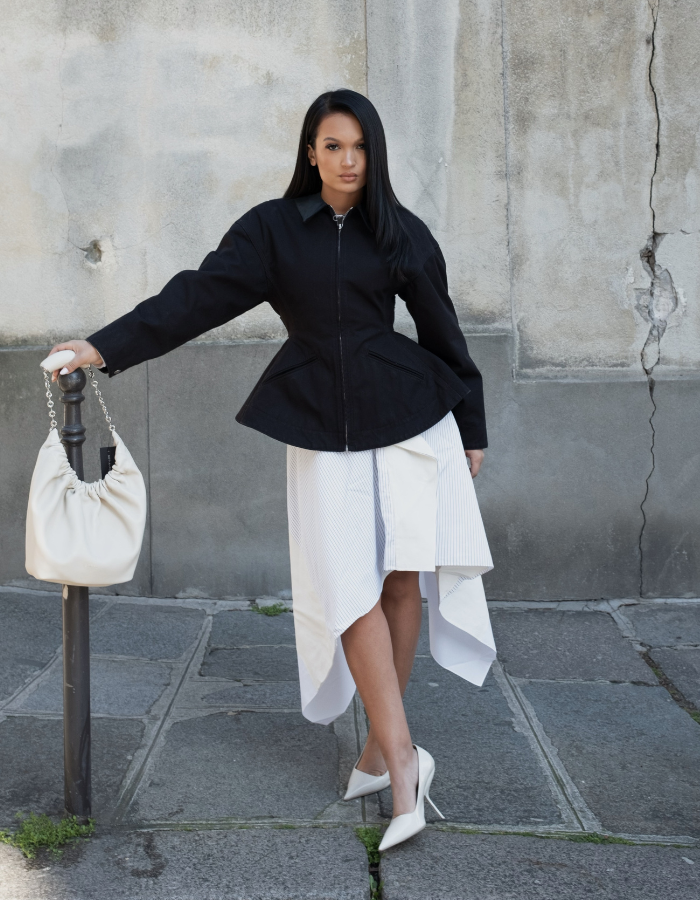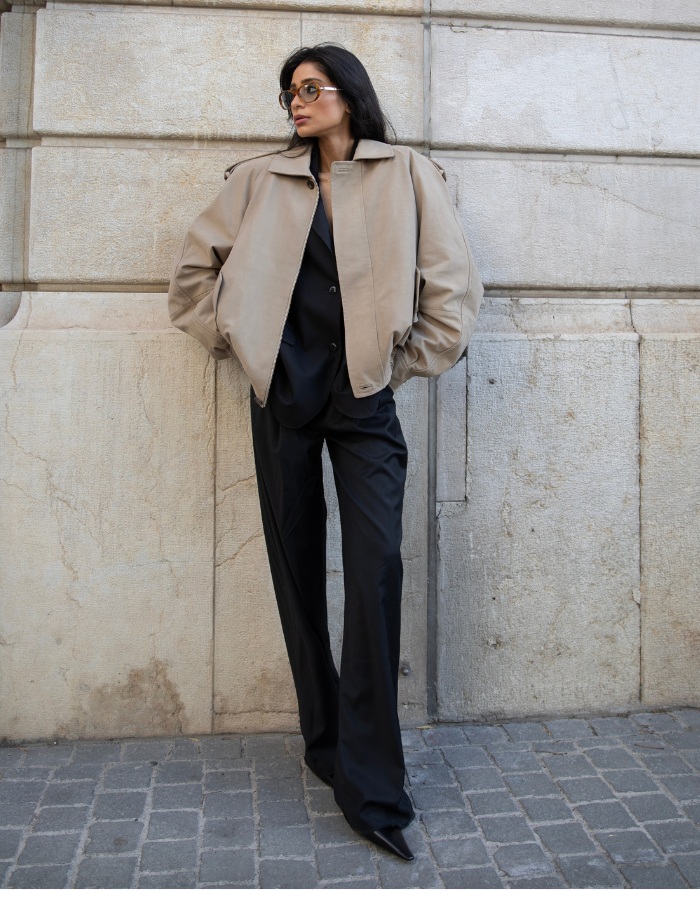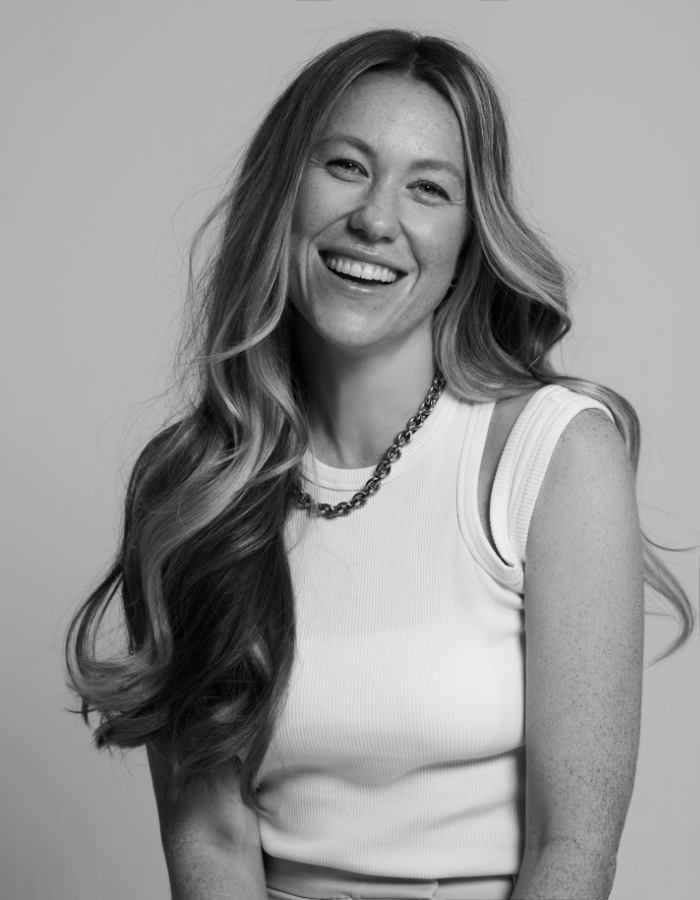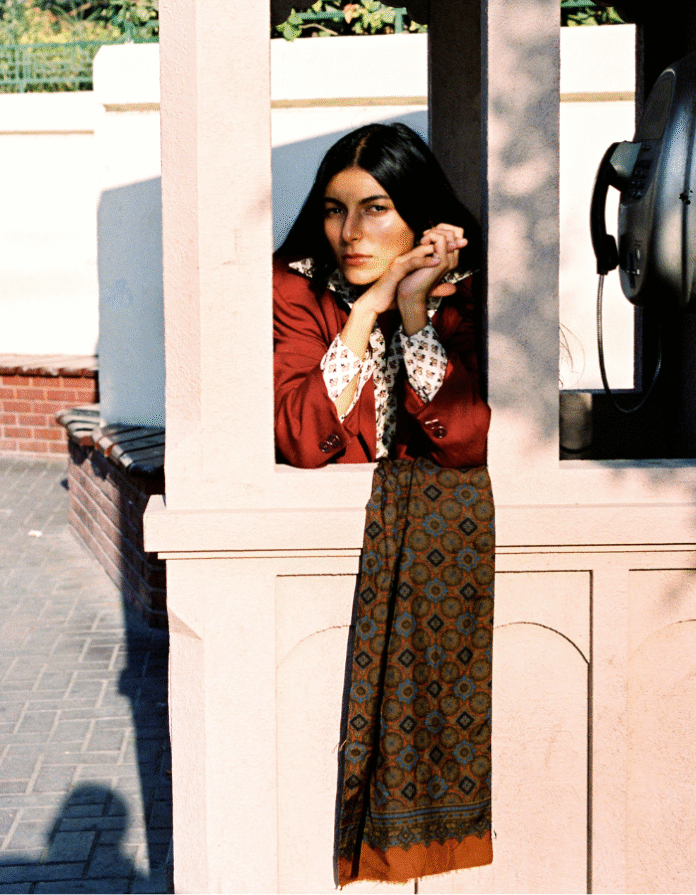In the realm of personal style, clothing transcends its primary function. It becomes a dialect, a non-verbal lexicon of identity and intent. For the discerning, fashion is not a pursuit of trends but a profound tool for self-actualisation, a means to construct and project one’s inner fortitude to the world. It is the daily practice of wearing one’s armor, not for battle, but for becoming.
Emirates Woman convened with four of the region’s most distinctive stylists – Chantal Brocca, Muzi Sufi, Oumayma Elboumeshouli, and Jade Chilton – to explore this intricate relationship between the wardrobe and the will. Their philosophies, though born from unique journeys, converge on a singular truth: authentic style is the ultimate expression of personal power.
Chantal Brocca
For Chantal Brocca, style is a philosophical pursuit, a radical act of authenticity in a world saturated with commercial noise. An economist by training, her entry into fashion was a conscious rebellion against systemic homogenization. Her formative education occurred not in ateliers, but in the sprawling vintage markets of Paris, which she describes as a universe blissfully divorced from billboards and influencers. “It was so free,” she recalls. “There were no trends. It was just your eyes and your fire and what you love.”
This experience became the bedrock of her belief that the modern fashion industry often “strips the meaning of political, social, cultural, artistic movements… strips it of its power.” For Brocca, this erosion of narrative is an erosion of self. “The clothes that we wear and the objects that surround us, they help us to define our identity to ourselves… they’re a mirror,” she asserts. When that mirror reflects a self curated by algorithms rather than inner desire, we cede our power, trading stability for anxiety, individuality for inclusion in a relentless rat race.
Her prescription is a process of profound realignment: a digital detox, a conscious seeking of beauty in the unexpected, and a fearless, free-flow experimentation with style. “It’s the practice of removing yourself from doubt,” she advises. “If your instinct says pick it, before your mind can come in with ‘maybe,’ just pick it. Just go with it.” This act of intuitive selection is a radical reaffirmation of self, a quiet revolution against the clamour of commerce.
Oumayma Elboumeshouli

Oumayma Elboumeshouli’s journey into fashion was born from a search for voice. “I was really looking for me as a personality,” she confesses, describing her younger self as an introvert yearning to express a creativity she felt bubbling within. Fashion became her megaphone, her outlet and eventually her profession.
Her style evolution (chronicled from the early days of the digital community on Lookbook.nu) was a 15-year excavation to find her authentic sartorial signature. Now, her strength is articulated through a uniform of powerful, almost architectural silhouettes. For important client meetings or days requiring an extra dose of fortitude, her prescription is unequivocal. “Always wear a big oversized, pointy, I would say, big shoulder, and some sick ass, pointy heels under your pants,” she states. “And everyone says it. Everyone’s like, okay, whoa, you look so powerful.”
Crucially, her strength is defined by dressing for herself – for the female gaze. She consciously chooses pieces that defy expectation, that prioritise her comfort and her vision of power over external validation. This conscious rejection of the male gaze is, in itself, a profound act of strength. Her advice is liberation through joyful experimentation. “Just take risks… Go for something that you would not usually go for and then see how you can own it.” She concludes with a mantra: “never be scared of what other people think… So just own it.”
Muzi Sufi

If Brocca’s strength is forged in philosophical fire, Muzi Sufi’s is inherited through a legacy of quiet elegance. Her first interaction with fashion is not a memory of a garment, but an emotion, watching her mother prepare for the day. “She would be doing something as simple as going to the grocery store… and she was always put together,” Sufi recalls. This daily ritual of self-respect became her blueprint for sartorial strength.
This sentiment finds a powerful echo in Oumayma Elboumeshouli’s philosophy, for whom getting dressed is a direct conduit to confidence. “If you look good, you feel good, right?” Elboumeshouli states with refreshing clarity. For both women, the armour is in the entirety of the ensemble, a deliberate composition that projects confidence before a word is spoken.
Sufi observes Dubai’s evolving fashion scene as a crucible for this newfound, collective strength. She sees the rise of regional designers as a fundamental reclamation of narrative. “With regional designers amplifying their position within the GCC, I think it’s a beautiful way to take back the mic,” she says. This reclamation empowers a generation to “feel connected to fashion… to feel like it’s not within the realm of impossible to come from somewhere different and make something beautiful.”
Her personal armoury is composed of deliberate, powerful details. “I love adding certain elements to every outfit, like a power shoulder with a cinched waist or a pointy toe to a wide leg trouser.” She often blends masculine and feminine elements to create a “bold contrast which translates into my definition of strength.” It is a uniform for the modern woman – subtly architectural, undeniably potent.
Jade Chilton

With a career spanning two decades, Jade Chilton possesses the mature intellect of a seasoned professional. Her perspective is grounded, her aesthetic defined by a bohemian spirit that values timelessness over trendiness. “I don’t like to follow trends… I’m all about longevity in my wardrobe,” she states. Her strength is synonymous with freedom – the freedom to wear a beloved silk gown for three years running, indifferent to who has seen it before.
She observes how women wield fashion as a deliberate psychological tool. “They can use it as an armor to feel good, to feel put together,” she notes. On days she feels nervous, she invests in that feeling, choosing an outfit that is “100% comfortable, but also I feel put together.” This is not vanity; it is strategy. It is the understanding that a composed exterior can consciously scaffold an uncertain interior.
Chilton defines this not as a loud, aggressive force, but as a “soft strength.” It is the power of self-belief, articulated through confidence and kindness. It’s the strength found in the flow of a chiffon skirt, the weight of a layered necklace, the comfort of a well-worn boot. A deeply personal armour that allows the true self to stand firm and flourish.
From Brocca’s philosophical deconstruction and Sufi’s maternal lessons, to Elboumeshouli’s transformative blazers and Chilton’s timeless gowns, the message is resoundingly clear from these four women, that fashion’s highest purpose is as a conduit to the self.
It is a tool for reclamation, for taking back narrative power from monolithic industries and defining beauty on one’s own terms. It is a form of armour, constructing a visual persona that protects, empowers, and projects inner confidence outward. It is a source of joy, finding liberation in the daily act of creation that is getting dressed. Ultimately, it is the pursuit of personal truth, using cloth as a canvas to paint one’s most authentic, unedited self for the world to see.
True sartorial strength is the quiet power of knowing who you are and dressing her with purpose. As these women prove, the most powerful outfit you will ever wear is your own authentic skin, artfully expressed.
– For more on luxury lifestyle, news, fashion and beauty follow Emirates Woman on Facebook and Instagram
Images: Supplied
Disclaimer : This story is auto aggregated by a computer programme and has not been created or edited by DOWNTHENEWS. Publisher: emirateswoman.com










